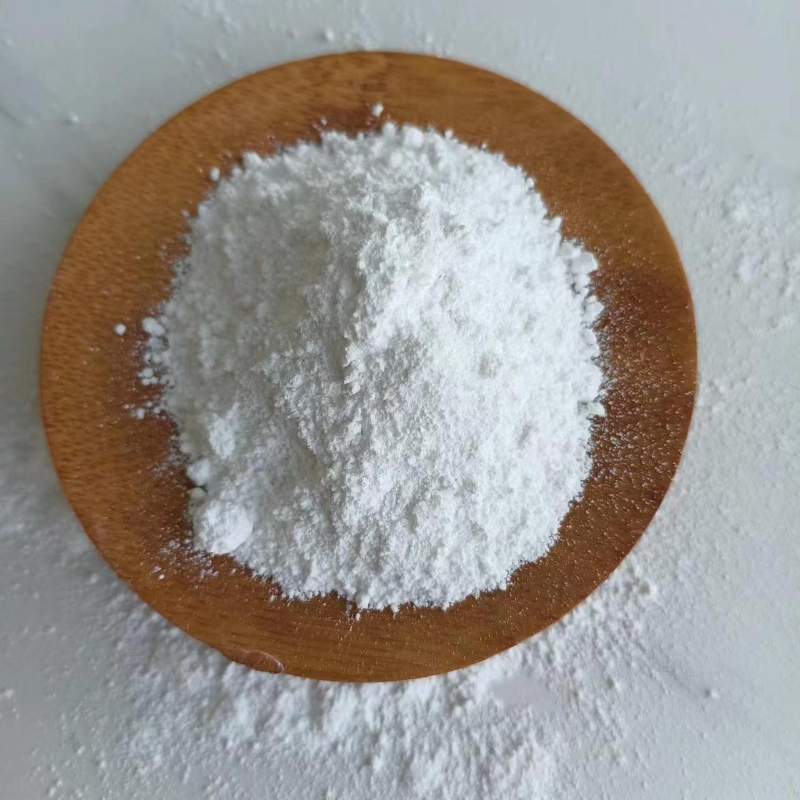-
Categories
-
Pharmaceutical Intermediates
-
Active Pharmaceutical Ingredients
-
Food Additives
- Industrial Coatings
- Agrochemicals
- Dyes and Pigments
- Surfactant
- Flavors and Fragrances
- Chemical Reagents
- Catalyst and Auxiliary
- Natural Products
- Inorganic Chemistry
-
Organic Chemistry
-
Biochemical Engineering
- Analytical Chemistry
- Cosmetic Ingredient
-
Pharmaceutical Intermediates
Promotion
ECHEMI Mall
Wholesale
Weekly Price
Exhibition
News
-
Trade Service
▎The WuXi AppTec content team edited non-alcoholic fatty liver disease (NAFLD, commonly known as fatty liver), including non-alcoholic fatty liver (NAFL, also known as simple liver steatosis), and non-alcoholic fatty liver disease evolved from it Hepatitis (NASH), fatty liver fibrosis, and cirrhosis are among the most common liver diseases in China and Western countries.
Many people who are in middle age or even very young may have received a "fatty liver warning" on their physical examination reports.
According to the "Guidelines for Prevention and Treatment of Non-Alcoholic Fatty Liver Disease (2018 Update)", the prevalence of non-alcoholic fatty liver disease in China is more than 25%, which is a serious threat to liver health.
Non-alcoholic fatty liver disease is also associated with increased health risks, the most interesting of which is cancer, especially liver cancer.
According to a study published in Hepatology, the official journal of the American Society for the Study of Liver Diseases (AASLD), non-alcoholic fatty liver disease is associated with a 16-fold increase in the risk of hepatocellular carcinoma.
Image source: 123RF comes from the Karolinska Institutet of Sweden (Karolinska Institutet) and the Massachusetts General Hospital (Massachusetts General Hospital) and other institutions, conducted a follow-up study of 48799 subjects, of which 8892 were suffering from Non-alcoholic fatty liver disease, 39907 is a control group.
The average age of the subjects was 50 years old, and 57% were men.
Researchers collected data on subjects' age, gender, height, weight, education level, smoking status, alcohol consumption, diet, drug use, etc.
, as well as the history and family of cardiovascular disease, diabetes, end-stage kidney disease, cancer and other diseases History information.In addition, it also counts the information about the subjects suffering from different cancers during the follow-up period, including hepatocellular carcinoma (HCC), non-hepatocellular carcinoma, and extrahepatic solid organ cancers (EHSO, such as lung cancer, breast cancer, prostate cancer, etc.
) and Blood cancer.
During the average follow-up period of 14 years, a total of 8424 cases of cancer occurred, of which 1691 cases were patients with non-alcoholic fatty liver disease, and 6733 cases were the control group.
Image source: 123RF After adjusting for other factors, researchers found that non-alcoholic fatty liver disease is associated with an increased risk of cancer.
Compared with the control group, patients with non-alcoholic fatty liver disease and overall cancer risk increased by 27%, hepatocellular carcinoma risk increased by 1608%, non-hepatocellular liver cancer risk increased by 75%, and extrahepatic solid organ cancer risk increased by 27%.
A 12% higher is associated with a 46% higher risk of blood cancer.
In addition, the researchers also found that as the severity of non-alcoholic fatty liver disease increases, the risk of hepatocellular carcinoma also increases.
Compared with patients with non-alcoholic fatty liver, patients with non-alcoholic steatohepatitis, fatty liver fibrosis, and cirrhosis are associated with an increased risk of hepatocellular carcinoma by 61%, 145%, and 395%, respectively.
Researchers analyzed that non-alcoholic fatty liver disease may have an impact on hepatocellular carcinoma and overall cancer risk through multiple mechanisms.
For example, non-alcoholic fatty liver disease can cause damage to the liver, cause hepatocellular carcinogenesis, and lead to the occurrence of liver cancer; it may also cause a variety of metabolic syndromes, which may increase the overall risk of cancer.
The corresponding author of the study and Professor Jonas F.
Ludvigsson of the Karolinska Institute in Sweden pointed out: "The study shows that in all stages of non-alcoholic fatty liver disease, it will significantly increase the risk of hepatocellular carcinoma and the overall cancer.
For non -alcoholic fatty liver disease.
For patients with alcoholic fatty liver disease, it is necessary to adopt more personalized strategies to screen for liver cancer. "Image source: 123RF According to the "Primary Liver Cancer Diagnosis and Treatment Specifications (2019 Edition)" issued by the National Health Commission of China, people at high risk of liver cancer should receive regular screening, including: hepatitis B virus (HBV) and/or C Hepatitis B virus (HCV) infection; chronic alcoholism (alcoholic liver disease); non-alcoholic steatohepatitis; eating aflatoxin-contaminated food; liver cirrhosis caused by multiple causes; family history of liver cancer.
At the same time, those over 40 years old Men are at higher risk and should also be screened.
Liver cancer screening mainly uses serum alpha-fetoprotein (AFP) and liver ultrasound.
In addition, for patients with non-alcoholic fatty liver disease, it is desirable to reduce the risk of cancer Risks should also be achieved through life>
For specific measures, please refer to our previous issue: The content of the liver is not good, want to reverse fatty liver? Just eat like this.
It is recommended to read the authoritative release: In 2040, China will have 6.
85 million new cancer cases and 5.
07 million deaths.
The warm spring is approaching.
Six types of diet "magic weapons" make immunity add 50% to your health.
I don’t know that I am sick.
The evaluation and prevention of this disease need to know what will happen to the incidence and death of cancer after 20 years.
There are two points to determine that 66% of diabetic patients die because of this type of disease! How to prevent reference materials[1] Tracey G.
Simon, et al.
,(2021).
Cancer Risk in Patients With Biopsy‐Confirmed Nonalcoholic Fatty Liver Disease: A Population‐Based Cohort Study.
Hepatology, DOI: https://doi .
org/10.
1002/hep.
31845.
[2] Increased risk of liver cancer in patients with non-alcoholic fatty liver.
Retrieved Apr 3 ,2021,from https://medicalxpress.
com/news/2021-04-liver-cancer -patients-non-alcoholic-fatty.
html[3] Medical Administration and Hospital Administration of the National Health Commission of the People’s Republic of China.
Guidelines for Diagnosis and Treatment of Primary Liver Cancer (2019 Edition) Note: This article aims to introduce the progress of medical and health research, not a treatment plan recommend.
If you need guidance on treatment plans, please go to a regular hospital for treatment.
Many people who are in middle age or even very young may have received a "fatty liver warning" on their physical examination reports.
According to the "Guidelines for Prevention and Treatment of Non-Alcoholic Fatty Liver Disease (2018 Update)", the prevalence of non-alcoholic fatty liver disease in China is more than 25%, which is a serious threat to liver health.
Non-alcoholic fatty liver disease is also associated with increased health risks, the most interesting of which is cancer, especially liver cancer.
According to a study published in Hepatology, the official journal of the American Society for the Study of Liver Diseases (AASLD), non-alcoholic fatty liver disease is associated with a 16-fold increase in the risk of hepatocellular carcinoma.
Image source: 123RF comes from the Karolinska Institutet of Sweden (Karolinska Institutet) and the Massachusetts General Hospital (Massachusetts General Hospital) and other institutions, conducted a follow-up study of 48799 subjects, of which 8892 were suffering from Non-alcoholic fatty liver disease, 39907 is a control group.
The average age of the subjects was 50 years old, and 57% were men.
Researchers collected data on subjects' age, gender, height, weight, education level, smoking status, alcohol consumption, diet, drug use, etc.
, as well as the history and family of cardiovascular disease, diabetes, end-stage kidney disease, cancer and other diseases History information.In addition, it also counts the information about the subjects suffering from different cancers during the follow-up period, including hepatocellular carcinoma (HCC), non-hepatocellular carcinoma, and extrahepatic solid organ cancers (EHSO, such as lung cancer, breast cancer, prostate cancer, etc.
) and Blood cancer.
During the average follow-up period of 14 years, a total of 8424 cases of cancer occurred, of which 1691 cases were patients with non-alcoholic fatty liver disease, and 6733 cases were the control group.
Image source: 123RF After adjusting for other factors, researchers found that non-alcoholic fatty liver disease is associated with an increased risk of cancer.
Compared with the control group, patients with non-alcoholic fatty liver disease and overall cancer risk increased by 27%, hepatocellular carcinoma risk increased by 1608%, non-hepatocellular liver cancer risk increased by 75%, and extrahepatic solid organ cancer risk increased by 27%.
A 12% higher is associated with a 46% higher risk of blood cancer.
In addition, the researchers also found that as the severity of non-alcoholic fatty liver disease increases, the risk of hepatocellular carcinoma also increases.
Compared with patients with non-alcoholic fatty liver, patients with non-alcoholic steatohepatitis, fatty liver fibrosis, and cirrhosis are associated with an increased risk of hepatocellular carcinoma by 61%, 145%, and 395%, respectively.
Researchers analyzed that non-alcoholic fatty liver disease may have an impact on hepatocellular carcinoma and overall cancer risk through multiple mechanisms.
For example, non-alcoholic fatty liver disease can cause damage to the liver, cause hepatocellular carcinogenesis, and lead to the occurrence of liver cancer; it may also cause a variety of metabolic syndromes, which may increase the overall risk of cancer.
The corresponding author of the study and Professor Jonas F.
Ludvigsson of the Karolinska Institute in Sweden pointed out: "The study shows that in all stages of non-alcoholic fatty liver disease, it will significantly increase the risk of hepatocellular carcinoma and the overall cancer.
For non -alcoholic fatty liver disease.
For patients with alcoholic fatty liver disease, it is necessary to adopt more personalized strategies to screen for liver cancer. "Image source: 123RF According to the "Primary Liver Cancer Diagnosis and Treatment Specifications (2019 Edition)" issued by the National Health Commission of China, people at high risk of liver cancer should receive regular screening, including: hepatitis B virus (HBV) and/or C Hepatitis B virus (HCV) infection; chronic alcoholism (alcoholic liver disease); non-alcoholic steatohepatitis; eating aflatoxin-contaminated food; liver cirrhosis caused by multiple causes; family history of liver cancer.
At the same time, those over 40 years old Men are at higher risk and should also be screened.
Liver cancer screening mainly uses serum alpha-fetoprotein (AFP) and liver ultrasound.
In addition, for patients with non-alcoholic fatty liver disease, it is desirable to reduce the risk of cancer Risks should also be achieved through life>
For specific measures, please refer to our previous issue: The content of the liver is not good, want to reverse fatty liver? Just eat like this.
It is recommended to read the authoritative release: In 2040, China will have 6.
85 million new cancer cases and 5.
07 million deaths.
The warm spring is approaching.
Six types of diet "magic weapons" make immunity add 50% to your health.
I don’t know that I am sick.
The evaluation and prevention of this disease need to know what will happen to the incidence and death of cancer after 20 years.
There are two points to determine that 66% of diabetic patients die because of this type of disease! How to prevent reference materials[1] Tracey G.
Simon, et al.
,(2021).
Cancer Risk in Patients With Biopsy‐Confirmed Nonalcoholic Fatty Liver Disease: A Population‐Based Cohort Study.
Hepatology, DOI: https://doi .
org/10.
1002/hep.
31845.
[2] Increased risk of liver cancer in patients with non-alcoholic fatty liver.
Retrieved Apr 3 ,2021,from https://medicalxpress.
com/news/2021-04-liver-cancer -patients-non-alcoholic-fatty.
html[3] Medical Administration and Hospital Administration of the National Health Commission of the People’s Republic of China.
Guidelines for Diagnosis and Treatment of Primary Liver Cancer (2019 Edition) Note: This article aims to introduce the progress of medical and health research, not a treatment plan recommend.
If you need guidance on treatment plans, please go to a regular hospital for treatment.







